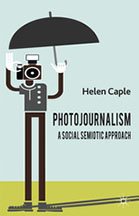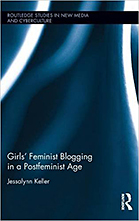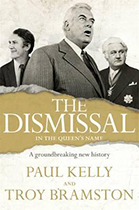Special Issue:
ANZCA 2016
Editorial
Hart Cohen
Western Sydney University
It gives me great pleasure to once again welcome ANZCA to the pages of Global Media Journal – Australia Edition. As with our last engagement with ANZCA papers in 2015 (Swinburne), we welcome the interest from the conveners of the 2016 ANZCA conference from the University of Newcastle to publish a selection of the papers. In now our tenth year of publication, we continue to make a significant contribution to communication and media studies in Australia. Many thanks to the guest editors, Dr Janet Fulton and Associate Professor Phillip McIntyre of Newcastle University for their efficient and diligent work in selecting and reviewing the papers. Thanks also to their referees who have assisted in the maintenance of high standards of scholarship for the journal. In addition to the ANZCA papers, we feature an essay in this issue by one of our editors, Dr Antonio Castillo. Dr Castillo’s contribution is on the Latin American Investigative Journalism Award that annually honours the best investigative stories produced in the region. We have also included the regular Media Monitors column from Dr Tim Dwyer and a number of book reviews to round out the issue.
Our next issue on the theme of “Narrative Resistance” is underway. The issue is a mix of Australian and European scholarship involving collaborators from a conference on the ethics of storytelling at the University of Turku, Finland. As usual, I acknowledge the great efforts of the GMJ/AU editorial team for their production work on this issue especially Myra Gurney, Antonio Castillo Roman Goik and Rachel Morley.
Guest Editorial
Janet Fulton
University of Newcastle
Phillip McIntyre
University of Newcastle
We are very pleased to present this collection of papers that showcases research presented at the 2016 conference of the Australian and New Zealand Communication Association (ANZCA). This edition is a continuation of a collaboration started in 2014 by then-ANZCA president Dr. Diana Bossio and we are proud to continue the relationship between ANZCA and GMJ-AU.
To provide a brief background for those who may not know about ANZCA, the Association is the professional body for Australian and Aotearoa New Zealand communication academics and practitioners. The Association is involved in scholarship and teaching in such diverse areas as journalism, public relations, law and ethics, creativity and communication, citizenship, new media, mobile, digital and social media, pedagogy, organisational and interpersonal communication, internet studies, advertising, environmental and science communication, radio, television and screen production, and media studies. The annual conference provides opportunities to present and discuss research from a broad range of communication areas and network with scholars from around Australia and New Zealand as well as internationally with many of the Association’s academics well known and active in the international communication community.
The 2016 conference was held at the University of Newcastle in July 2016 with more than 150 national and international scholars who presented their research in 26 streams of specialisations. The program included national and international keynote speakers from both industry and academia. Professor Stephen J.A. Ward presented on global ethics in a digital environment, Professor Amanda Lotz discussed how US television has changed in the 21st century and Professor Tony Schirato entertained us with his research on fantasy sport. Industry keynotes included Ms. Phillipa McGuinness, editor at UNSW Press and author of Copyfight, with a keynote titled The people formerly known as the audience: power shifts in the digital age, and Gold Walkley award winning Newcastle journalist Dr. Joanne McCarthy, who told us about her experiences reporting on child sexual abuse in New South Wales’ Hunter region and how journalism has changed in the last 10 years. Dr. McCarthy’s work was instrumental in instigating the Royal Commission into child sexual abuse. The conference program also included a Q&A style panel with five panelists and a moderator with questions from the audience. We chose five academics who are experts in their field and highly experienced in researching and teaching in communication as well as current issues that concern us as communication scholars. The panelists included Prof. Amanda D. Lotz (audience), Prof. Lelia Green (young people online and other online expertise), Dr. Diana Bossio (social media and journalism), Prof Stuart Cunningham (creative industries) and A/Prof Donald Matheson (ethics).
The conference theme for ANZCA 2016 was ‘Creating Space in the Fifth Estate’. We suggested that while the fifth estate may have initially referred to bloggers and other alternative media producers, it can now be broadened out to include all communicators in the digital terrain. We wanted to encourage researchers to think about the deep shifts in communication taking place there and asked them to examine where communicators of all stripes fit into this brave new world. Questions around power, creativity, identity, ethics, audiences, internationalisation, organisations, social media, and newer forms of media encouraged scholars to explore, report on, bring unique perspectives to bear and, most importantly of all, share their ideas about this changing terrain with us.
While there is a theme for each conference, ANZCA also encourages papers, presentations and panels that address any communication issues and research. One of the strengths of the ANZCA conference is the breadth of research that is presented at each conference across a wide range of communication fields. The papers published in this edition represent some of the best papers from different conference streams including public relations, journalism, screen production, creativity and creative industries, and media studies.
Kurt Sengul and Melanie James, for example, provide an exploration of public relations and strategic positioning in their paper Power and the Passion: A positioning analysis of the electricity privatisation debate in the 2015 NSW state election. Sengul and James use critical discourse analysis and the Framework for Intentional Positioning in Public Relations (James, 2014) to study a sample of speeches and interviews by NSW Premier Mike Baird and Opposition Leader Luke Foley and analyse how each of them positioned their political parties in the contentious debate around electricity privatisation.
In the journalism stream, Caryn Courtney’s paper, Recovering a radio ethos: how John Curtin created conversational spaces with journalists, 1941-1945©, reports on a study that employed quantitative and qualitative analysis to discover how Australian wartime Prime Minister John Curtin used radio to develop an ‘ethos of intimacy’ and build credibility during World War II. Curtin successfully used radio during this time to win the support of journalists and the public and portray himself as an ordinary Australian. Courtney has analysed newly discovered archival material, including private rehearsals, confidential journalists’ notes and secret government memoranda to assess Curtin’s radio broadcasting techniques, readability scores and media skills to evoke a sense of inclusivity for his audience.
The next two papers by Susan Kerrigan, in the Screen Production stream, and Elizabeth Paton, in Creativity and Creative Industries, apply creativity research to examine screen production and fiction writers. Paton asks whether the skills and ability to be creative are general or if specific domains need specific skills. Paton’s article, ‘How do people who trained in teaching, medicine or law become fiction writers? The case for task specific commonalities across domains of creativity’, argues that while there may be domain-specific skills, it is also simple to demonstrate that skills can be transferred between domains and Paton does this by drawing on interviews she conducted with fiction writers. Kerrigan, meanwhile, in ‘Filmmaking as Creative Practice: assessing creative magnitude and scale’, takes us deeply into filmmaking as a creative practice and examines the relationship between spectatorship and filmmaking. Kerrigan states that two distinct research areas of filmmaking research – film and cinema studies and screen production – are sometimes conflated and she employs a systems view of creativity to argue against this conflation.
Finally, Douglas Allan, Andrew Kelly and Antony Stephenson examine how police practice, decision making and legitimacy, is influenced by old and new media. Allan, Kelly and Stephenson use two case studies to compare how the New South Wales force is dealing with legitimacy: the first case study is an analysis of traditional reporting of fraud crime in New South Wales and the second is assessing how NSW’s police force use Facebook to engage with the community in policing. They ask the question: is old or new media of more use to the police force? And they ask this question in the context of legitimacy and in the face of an increasingly challenging media environment.
We would like to thank Hart Cohen and the editorial team at GMJ-AU for continuing to provide a place for ANZCA to publish interesting and relevant papers in communication research. Congratulations to the authors and many thanks to the reviewers who provided such valuable feedback that helped the authors present their best work.
As a final note, we would like to encourage readers to join ANZCA. The networking and mentoring opportunities provided by ANZCA is invaluable, particularly for post-graduate students and early career researchers. Membership of the Association gives you reduced conference rates, copies of ANZCA journals Communication Research and Practice and Media International Australia, access to special events and workshops, and a network of scholars in Australia and New Zealand who are doing fascinating, high-quality research.
Dr. Janet Fulton and Associate Professor Phillip McIntyre
About the co-editors
Janet Fulton is a Senior Lecturer in Communication and Media at the University of Newcastle in Australia and teaches and researches in the area of journalism, journalism education, the future of journalism, social media, work-integrated-learning, and creativity and cultural production.
Janet’s research in these areas have been presented at national and international conferences and published in books and journals including Continuum, Media International Australia, Australian Journalism Review and Javnost: The Public. She is co-editor of The Creative System in Action: Understanding Cultural Practice and Production, published in 2016 by Palgrave MacMillan UK. Janet has a PhD in Communication and Media Arts from the University of Newcastle. Her dissertation, titled Making the News: Print Journalism and the Creative Process, investigated how print journalists in Australia interact with social, cultural and individual influences when they produce, or create, their work.
Janet is an Executive Member (NSW representative) of the Australian and New Zealand Communication Association and is on the Executive of the Journalism Education and Research Association of Australia. She is also active on social media with accounts on Academia.edu, LinkedIn, Instagram, Pinterest and Twitter and has a WordPress site, which she uses for both personal and professional purposes.
Contact:
University of Newcastle, Australia
Senior Lecturer in Media and Communication
Program Convenor, Bachelor of Communication
Co-convenor, ANZCA conference 2016
Email: janet.fulton@newcastle.edu.au
Phillip McIntyre is an international expert in researching and teaching creativity and innovation. Phillip has published widely in this area with a particular focus on the creative processes involved in various aspects of music including songwriting, sound engineering and producing. His book, Creativity and Cultural Production: Issues for Media Practice, was published by Palgrave MacMillan in 2012, as was the co-edited book The Creative System in Action: Understanding Cultural Production and Practice (2016).
Previously, Phillip was involved in the music industry where he was a songwriter, instrumentalist, musical director and manager for various groups dealing with promoters, record companies and distribution labels. He managed a section of a large music retailer and his work as a music journalist entailed interviewing and writing feature stories on a wide range of musicians including David Bowie, John Fogerty, Paul Kelly, Don Walker, Daniel Johns, Mandawuy Yunupingu, Tim Rogers and many others. He has active Facebook, Linked In and academia.edu accounts and his website is: http://www.texasradio.com.au/pages/mcintyre_p.html
Contact:
University of Newcastle, Australia
Associate Professor in Media and Communication
President, Australian and New Zealand Communication Association
Co-convenor, ANZCA conference 2016
Refereed Articles
-

How Do People who Trained in Teaching, Medicine or Law become Fiction Writers? The Case for Task Specific Commonalities across Domains of Creativity
Elizabeth Paton
Read Abstract Read Article
University of Newcastle
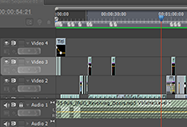
Filmmaking as Creative Practice: Assessing Creative Magnitude and Scale
Susan Kerrigan
Read Abstract Read Article
University of Newcastle

The Impact of a Changing Media Landscape on Police Practice and Legitimacy
Douglas Allan
Read Abstract Read Article
Charles Sturt University
Andrew Kelly
Charles Sturt University
Antony Stephenson
Charles Sturt University
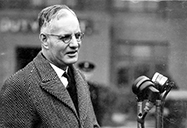
Recovering a Radio Ethos: How John Curtin Created Conversational Spaces with Journalists, 1941-1945
Caryn Coatney
Read Abstract Read Article
University of Southern Queensland
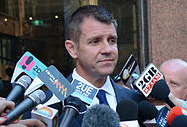
Power and the Passion: A Positioning Analysis of the Electricity Privatisation Debate in the 2015 NSW State Election
Kurt Sengul
Read Abstract Read Article
University of Newcastle
Melanie James
University of Newcastle
Essays
-
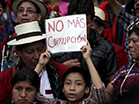
Of shadows and lights: Latin American investigative journalism
Antonio Castillo
Read Abstract Read Article
RMIT University
Book Reviews
-
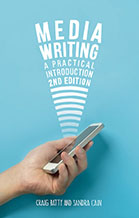
Media Writing: A Practical Introduction (2nd edition)
Janet Fulton
Read Review
University of Newcastle

